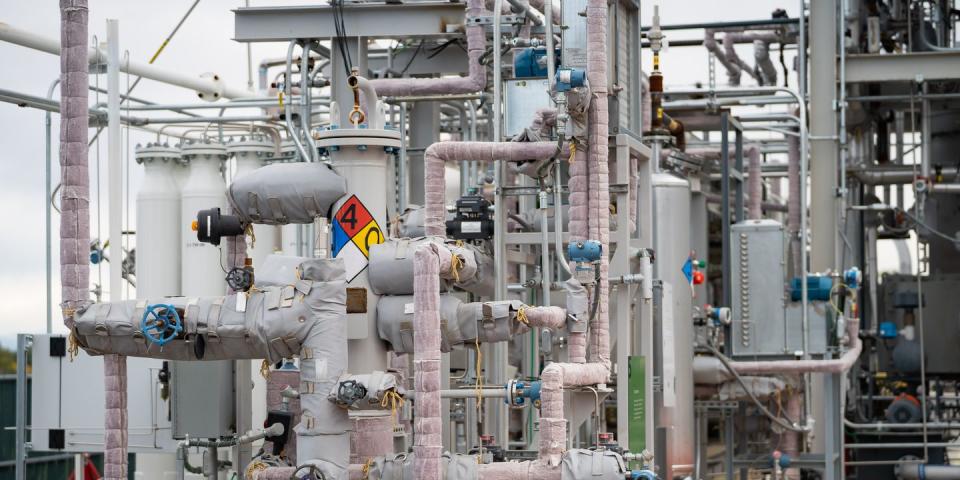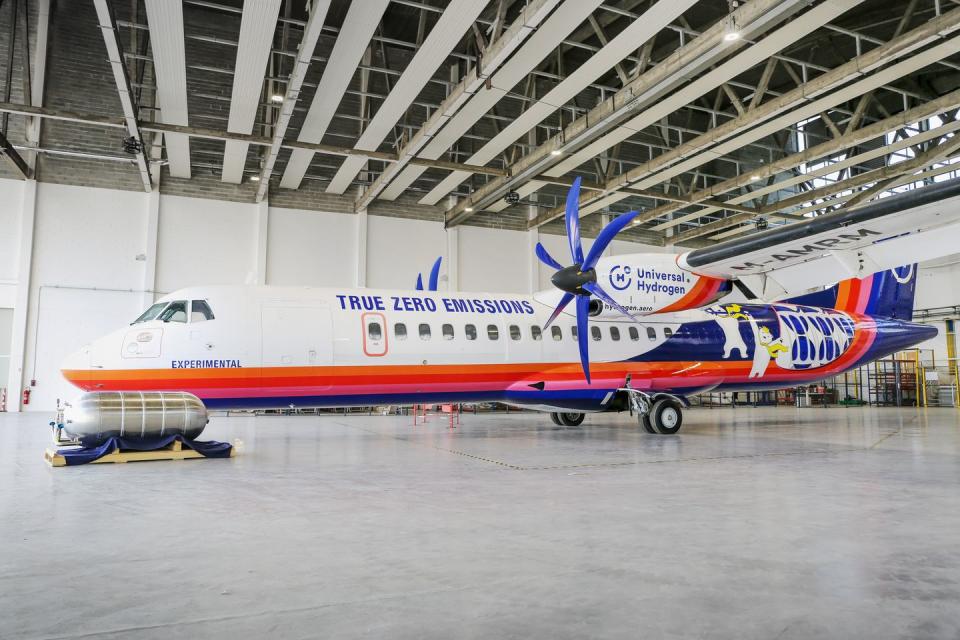This State Is Bucking to Become a Big-Time Hydrogen Player

Hydrogen fuel-cell advocates are working on developing solutions for transportation that doesn’t play well with batteries—long-distance trucking, container shipping, and even aircraft.
New Mexico has applied to become one of four hydrogen hubs in the United States and share in $8 billion in federal funding through the Investment and Jobs Act.
Several companies located or looking to build in the state are specializing in different areas of fuel cell technology, including companies producing hydrogen storage tanks and containers, specialty fuel-cell catalysts, and equipment for smaller, distributed uses.
Advocates for hydrogen fuel-cell cars and trucks have had to take the long view. In 1999, when what was then DaimlerChrysler had already spent $1 billion on the technology, and announced a goal of 100,000 fuel-cell cars on the road by 2006, company hydrogen guru Ferdinand Panik said of his Necar 4, “This car is really in the form that we could put in customer hands.”
It didn’t happen, and the program never went beyond the testing stage. More recently, automakers including Toyota, Honda, and Hyundai have all introduced commercial fuel-cell cars, but they’ve mostly been confined to small production programs in a niche around Los Angeles, the only place in the United States with a significant hydrogen fueling infrastructure.
It’s possible, though, that hydrogen is on the move again, and this time the focus is not on passenger cars, but rather on transportation that doesn’t play well with batteries—long-distance trucking, container shipping, and even aircraft. It’s happening somewhat slowly, though there was $2 billion in hydrogen-based venture capital activity globally in 2021, and a much bigger number anticipated for 2022.
Bosch is spending $200 million to refit a South Carolina plant to supply fuel cells for heavy-duty electric trucks starting in 2026. The Port of Long Beach is planning to mostly use hydrogen-powered vehicles by 2035. If the container ships that dock there could be hydrogen based it would make a big difference. Green Car Reports estimated in 2009 that one such giant ship burning sulfur-rich bunker fuel can pollute the air as much as 50 million cars.
New Mexico is hoping to become a dominant player, and has applied—along with Colorado, Utah and Wyoming—to become one of four hydrogen hubs and share in $8 billion in federal funding through the Investment and Jobs Act.
“We know how to decarbonize the grid, but transportation is much harder,” said Rod Borup, fuel-cell program manager at Los Alamos National Laboratory (LANL) in Los Alamos. While fuel-cell cars might have 150,000-mile lifespan, LANL and four other federal labs are trying to develop the million-mile hydrogen truck. Fuel-cell trucks, with a possible 1000-mile range, already have an advantage over vehicles like Tesla’s electric Semi, which will go 300 to 500 miles on a charge.
The key barriers, Borup said, are meeting cost targets, developing durable membranes and coming up with catalysts capable of meeting the required power density. By 2030, the goal is delivering a robust fuel cell with 68 percent efficiency at $80 per kilowatt. The million-mile goal is for 2050. Fuel-cell trucks show promise, but got delivered a blow in 2020 when prominent player Nikola was charged with misrepresenting its progress towards a buildable truck. Founder Trevor Milton was found guilty of three counts of fraud in October. But Nikola soldiers on without him, and will reportedly build trucks with the Bosch fuel cells from South Carolina. Other companies working on fuel-cell trucks include Daimler-Benz, Volvo, and Hyundai.


 Yahoo Autos
Yahoo Autos 